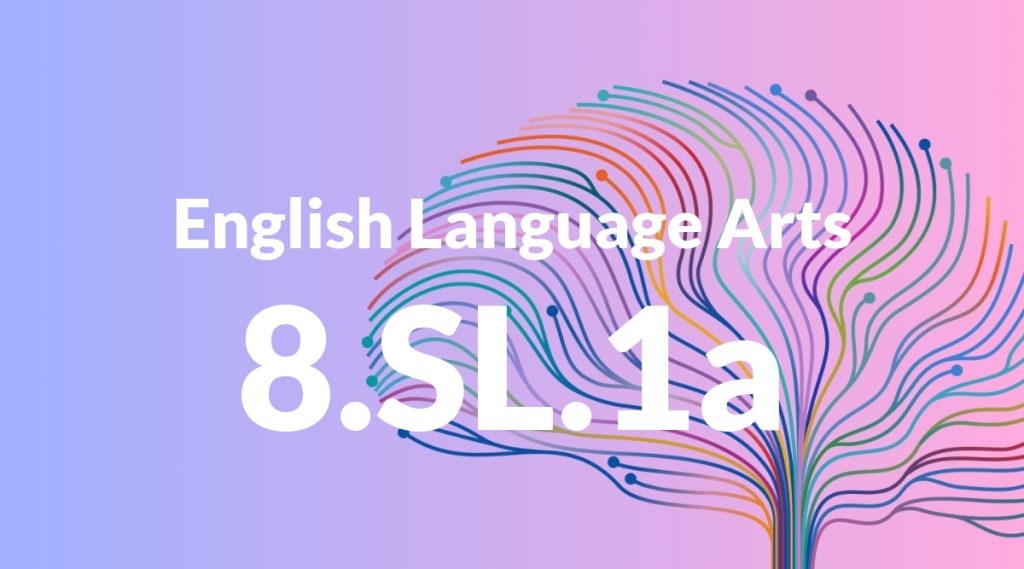Standard: 8.SL.1 – Engage effectively in a range of collaborative discussions (one-on-one, in groups, and teacher-led) with diverse partners on grade 8 topics, texts, and issues, building on others’ ideas and expressing their own clearly.
Grade level: Grade 8
Subject: English Language Arts
Domain: Speaking & Listening
Teacher Overview
This standard focuses on developing students’ abilities to engage in collaborative discussions. This skill is vital for academic success and real-world interactions, as it helps students articulate their ideas and build on the contributions of others. Before tackling this standard, students should be comfortable with basic speaking and listening skills, such as expressing their ideas and respecting others’ viewpoints.
Mastering this standard will prepare students to lead discussions, use evidence to support their points, and critically evaluate the contributions of others.
Common Misconception 1
Some students may feel that their contributions are only valuable if they dominate the conversation. This is incorrect because effective discussions require balanced participation from all members.
Intervention 1
To address this misconception, teachers can use structured discussion formats like ‘think-pair-share’ to ensure equal participation and emphasize the value of diverse perspectives.
Common Misconception 2
Another common misconception is that listening is passive and less important than speaking. In reality, active listening is crucial for understanding and building on others’ ideas.
Intervention 2
Teachers can remediate this by incorporating active listening exercises and highlighting the importance of listening in effective communication.
Prerequisite Knowledge
Students should have basic skills in listening and speaking, including the ability to follow conversations, express their ideas clearly, and respect others’ viewpoints.
Subsequent Knowledge
Students will develop advanced communication skills, including the ability to lead discussions, use evidence to support their points, and critically evaluate the contributions of others.
Instructional Activities
- Organize a classroom debate on a current event.
- Assign group projects that require collaborative planning and presentation.
- Conduct peer review sessions where students give and receive feedback.
- Facilitate book club discussions on assigned readings.
- Plan team-building activities that require communication and cooperation.




